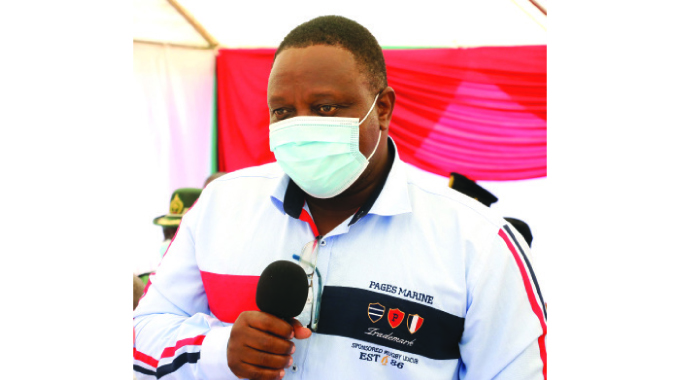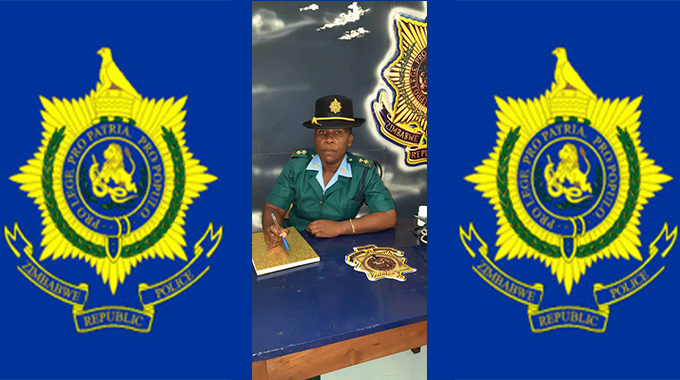Zim-Bots agree on electronic tags for cattle

Mashudu Netsianda, Senior Reporter
ZIMBABWE and Botswana have agreed to electronically tag cattle for communities living along the border and the programme is set to be pioneered at Mlambaphele border area in Gwanda District, Matabeleland South province.
The latest development is part of a raft of measures agreed during the recent third session of the Zimbabwe-Botswana Bi-National Commission (BNC) in Victoria Falls following an increase in stocktheft cases along the border.
Matabeleland South continues to record high cases of stock theft with areas like Tshanyaugwe Nhwali, Mlambaphele, Guyu, Manama, Mankonkoni Rustlers Gorge and Ngoma being identified among the hotspots.
The notorious cattle rustlers reportedly pounce on communities and change the brand marks of stolen cattle to evade justice.
In some instances, they slaughter the beasts in the bush and carry the meat, some of which is allegedly supplied to butcheries while some is sold to the public from people’s houses.
President Mnangagwa has since set up an inter-ministerial committee to tackle rampant cross-border cattle rustling along the Zimbabwe-Botswana border.
The inter-ministerial committee is chaired by Home Affairs and Cultural Heritage Minister Kazembe Kazembe.
Other committee members include Ministers Oppah Muchinguri-Kashiri (Defence and War Veterans Affairs), July Moyo (Local Government and Public Works), Mangaliso Ndlovu (Environment, Climate, Tourism and Hospitality Industry), Professor Mthuli Ncube (Finance and Economic Development) and Dr Anxious Masuka (Lands, Agriculture, Water, Fisheries and Rural Development).
Speaking during a tour of Mlambaphele Border Post to interface with the affected communities, Minister Kazembe said Zimbabwe and Botswana agreed to devise and explore ways aimed at curbing stocktheft.
“Zimbabwe and Botswana agreed that there is a need to electronically tag the cattle along the border, especially here at Mlambaphele where this programme is going to be pioneered.
We need to urgently address this issue of cattle rustling as per agreements made by two countries during the third session of Bi-National Commission last month,” he said.
Minister Kazembe said since cattle rustling is affecting communities on both sides of the border, there is a need for the two countries to jointly address it.
He said Government is also working towards decentralising the data capturing system for cattle.
“There is need to localise the data capturing system because real time communication is very important when it comes to fighting this scourge of stocktheft,” he said.
During the meeting, concerns were raised over the increasing number of stray cattle some of which ended up being auctioned.
It also emerged that every week 30 Botswana farmers cross into the Zimbabwean side through Mlambaphele Border Post to look for their stolen cattle.
While the problem has been perennial, livestock rustling is no longer ordinary, but now reportedly involves violent seizure of animals by armed people as it has developed into a well-organised crime involving vandalism and theft of veterinary fence especially on the Botswana side of the border where most of the domestic animals are stolen.
Officials from the Zimbabwean Embassy in Botswana last year visited some affected communities on the Botswana side to assess and appreciate the problem.
Last year, cross-border stocktheft also prompted Botswana to appoint a commission to inquire into the escalating problem.
The initiative was in response to numerous cases of cattle rustling, which had resulted in communal farmers along the border losing livestock.
The nine-member commission of inquiry was set to investigate stocktheft cases in the Bobirwa constituency in Botswana and along Tuli River in Matabeleland South province, Zimbabwe.
Cattle rustling had caused tension between the two countries for the past decade after Botswana introduced a shoot-to-kill policy on any Zimbabwean livestock that strayed into the neighbouring country’s territory.
Botswana has defended the policy saying it is meant to stop the spread of foot and mouth disease.
Matabeleland South provincial veterinary officer, Dr Enat Mdlongwa, said Gwanda district continued to record an increase in the number of stray cattle, some of which are believed to have been stolen.
“When it comes to stray cattle, we have so many animals and the local authority report the animals to police who then keep them in their custody. If no one claims them after three months they are then sold through an auction,” he said.–@mashnets












Comments